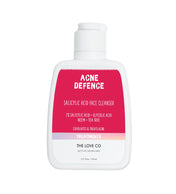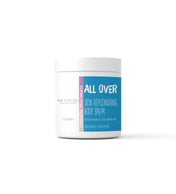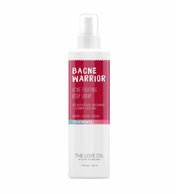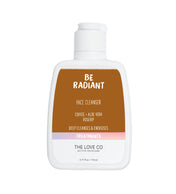Tea Tree Oil Benefits: Your Essential Guide
Tea tree oil comes from the Melaleuca alternifolia plant and is a popular essential oil with medicinal properties. It has antibacterial, anti-inflammatory, and antifungal components. This blog post will discuss its origin and extraction process, health benefits, everyday uses, side effects, precautions to take when using it, dosage guidelines, interactions with other medications. Whether you're a long-time user or new to tea tree oil benefits, this article will provide valuable insights into its benefits and more.
Understanding Tea Tree Oil
Derived from the leaves of the Melaleuca alternifolia tree, melaleuca oil has over 100 different components, with terpinen-4-ol as the main active ingredient. Its antimicrobial properties have been utilized in traditional medicine for decades, and clinical trials have demonstrated its effectiveness in treating skin conditions like acne and nail fungus. When using melaleuca oil, it's important to consult healthcare providers for optimal results.
Origin and Extraction
Originating from the New South Wales region of Australia, melaleuca oil, commonly known as tea tree oil, is extracted through steam distillation of the leaves of the tea tree. Renowned for its antimicrobial properties, this pure essential oil has been a staple ingredient in various topical products, ranging from tea tree oil gel and shampoo to creams and solutions. Its effectiveness has even been studied in clinical trials, showing promising results against demodex blepharitis and acne in recent decades.
Active Components
Tea tree oil contains various active components, including terpinen-4-ol, which is responsible for its antimicrobial and anti-inflammatory properties. Additionally, other active ingredients such as cineole and pinene contribute to the oil’s therapeutic benefits, making it effective in combating skin infections, insect bites, and more. These components are what give tea tree oil its unique healing properties, setting it apart from other essential oils. Its effectiveness in addressing a range of skin and health issues makes it a valuable addition to various topical products and treatments.
Health Benefits of Tea Tree Oil
Tea tree oil, also known as melaleuca oil, boasts remarkable antimicrobial and anti-inflammatory properties, effectively addressing various skin conditions. Clinical trials have substantiated its efficacy in treating skin infections, prompting its use in healthcare. Moreover, it serves as an effective remedy for nail fungus, athlete’s foot, and tinea pedis. However, caution is advised due to reported cases of prepubertal gynecomastia. Its versatile applications include tea tree oil gel, shampoo, and cream, offering health benefits such as alleviating skin irritation and treating demodex blepharitis. With its therapeutic advantages widely acknowledged in recent decades, tea tree oil continues to be a popular choice for natural health remedies.

Antibacterial Properties
Tea tree oil, also known as melaleuca oil, boasts impressive antibacterial activity, effectively combating various bacterial infections like acne and bad breath. Its use as a body wash offers protection against harmful bacteria while cleansing the skin. The oil's antibacterial properties make it a popular choice for individuals seeking natural remedies for bacterial-related skin issues. Additionally, the use of tea tree oil in solutions such as gels, shampoos, and creams has reinforced its reputation for promoting skin health and combating bacterial afflictions.
Anti-Inflammatory Uses
Tea tree oil, also known as melaleuca oil, offers anti-inflammatory effects, reducing skin irritation, insect bites, and allergic reactions. It is particularly beneficial for soothing skin conditions like contact dermatitis and eczema, providing relief to users. When used in a tea tree oil gel or shampoo, its soothing properties can aid in alleviating skin discomfort and promoting overall skin health. In recent decades, the health benefits of tea tree oil, including its anti-inflammatory uses, have garnered attention, making it a popular choice for skincare regimens.
Antifungal Advantages
Tea tree oil's antifungal properties render it effective in addressing toenail onychomycosis, athlete’s foot, and nail fungus. The oil has exhibited positive outcomes in treating tinea pedis, making it a preferred choice for topical application on skin infections. Melaleuca oil's benefits also extend to combating these fungal conditions, offering a natural solution for individuals seeking an alternative to conventional treatments like benzoyl peroxide.
Effective Against Acne
Tea tree oil's antimicrobial properties, particularly against Propionibacterium acnes, make it a potent remedy for acne. When used in lower concentrations, it has proven to be an effective and natural solution for promoting skin health. The oil's ability to combat acne-causing bacteria makes it a popular choice for those seeking gentle yet powerful skincare options. Its versatility extends beyond acne treatment, making it a valuable addition to skincare routines.

Everyday Uses of Tea Tree Oil
Harnessing its antimicrobial activity, melaleuca oil is a key ingredient in natural deodorants, offering enduring protection against odor-causing bacteria. When integrated into hair care products, tea tree oil combats conditions like head lice, providing a holistic solution for hair health. Its efficacy in toenail fungus and athlete’s foot makes it a popular topical application, supporting healthy skin. Recent decades have seen increased use of this pure essential oil in products like tea tree oil gel, shampoo, and cream, demonstrating its versatility and health benefits across various uses.
As a Natural Deodorant
Harnessing its antimicrobial properties, melaleuca oil is a potent natural ingredient in deodorants, ensuring lasting defense against body odor. Its natural benefits effectively neutralize body odor, providing a safer alternative to conventional deodorants. The use of tea tree oil gel or cream in deodorants and personal care products has surged in recent decades due to its efficacy in combating odor-causing bacteria, setting it apart as a top choice in the realm of natural deodorants.
In Wound Healing
Tea tree oil, also known as melaleuca oil, exhibits antimicrobial and anti-inflammatory properties, promoting wound healing and preventing infections. Clinical trials support its benefits in wound care, showing faster healing with topical application on small wounds. Compared to benzoyl peroxide, tea tree oil gel offers a natural alternative for wound healing. Its efficacy in wound care positions it as a viable option alongside placebo groups in studies. In recent decades, its use in wound healing has gained traction, establishing it as a valuable resource in promoting skin health.
Side Effects of Tea Tree Oil
While generally safe, melaleuca oil may cause skin irritation in some individuals. In rare cases, topical use of tea tree oil has been associated with contact dermatitis. It’s important to use lower concentrations of tea tree oil to reduce the risk of skin irritation. Some people may experience allergic reactions to benzoyl peroxide, although this is uncommon. When using tea tree oil gel, patch test on a small area of skin before more extensive use.
Common Side Effects
Skin irritation, redness, and itching are common side effects of melaleuca oil. Contact dermatitis or allergic skin reactions may also occur in some cases. Higher concentrations of tea tree oil gel can increase the likelihood of skin irritation, especially on sensitive skin areas. However, these side effects are usually mild and tend to resolve on their own. Studies have shown that benzoyl peroxide, when compared to a placebo group, may also cause similar side effects like redness and dryness. In general, using tea tree oil cream or solution in appropriate doses is unlikely to cause severe side effects, making it a safe option for addressing various health concerns.
Severe Side Effects to Watch Out For
Rare instances link tea tree oil to severe skin conditions. Anaphylaxis from allergic reactions is extremely unusual. Ingestion can lead to significant side effects such as confusion and loss of muscle coordination. While severe side effects are uncommon, medical attention is crucial if they occur. Discontinue use and consult a healthcare provider if experiencing severe side effects.
Precautions When Using Tea Tree Oil
When using melaleuca oil, avoid ingestion to prevent serious health complications. Always dilute tea tree oil before topical application, especially on skin conditions, and discontinue use if irritation occurs. Keep it out of children's reach as ingestion can be harmful. If pregnant or breastfeeding, consult a healthcare provider before using tea tree oil.
Risks Associated with Ingestion
Ingesting melaleuca oil can result in serious side effects, such as drowsiness, confusion, and even coma. Even small amounts may cause stomach pain and vomiting. Whether accidental or intentional, immediate medical attention is essential. Never ingest melaleuca oil, as it can be toxic and pose significant health risks. Ingestion can also interact with certain medications, leading to adverse effects. It's crucial to be cautious and seek medical help if ingestion occurs.
Risks Associated with Topical Applications
Topical application of undiluted melaleuca oil may result in skin irritation, redness, or allergic reactions. Direct skin contact with concentrated tea tree oil gel can cause burning, stinging, and discomfort. Extended use of tea tree oil cream, especially in higher concentrations, might lead to skin sensitization. To minimize irritation, it's crucial to dilute tea tree oil solution with a carrier oil when using it on the skin. Additionally, individuals with skin conditions such as eczema should be cautious, as tea tree oil can potentially exacerbate these conditions.
Dosage Guidelines for Tea Tree Oil
When using melaleuca oil topically, it’s advisable to use lower concentrations, typically 5% or less. It's crucial to dilute tea tree oil with a carrier oil like coconut oil or almond oil before applying it to the skin. For conditions like nail fungus, concentrations of up to 100% have been used, but lower concentrations may be effective. The appropriate amount of tea tree oil varies based on individual response and the specific condition being treated. Seeking personalized dosage guidelines and recommendations from a healthcare provider is recommended to ensure safe and effective use.
How Much Tea Tree Oil Should You Use?
When using tea tree oil on the skin, it is recommended to dilute 5 drops of tea tree oil with 1 ounce of carrier oil. For topical applications, lower concentrations of 1-2.5% are generally well-tolerated. The amount of tea tree oil to use depends on the intended use, skin sensitivity, and individual preferences. It is advisable to consult a healthcare provider for personalized dosage recommendations.
What Happens If You Take Too Much?
Excessive consumption of tea tree oil can have serious consequences. It may lead to confusion, loss of muscle coordination, drowsiness, disorientation, and weakness. If accidental ingestion occurs, seek immediate medical help, especially for children. Overdosing on tea tree oil requires prompt medical intervention and contacting a poison control center or healthcare provider.
Interactions and Contraindications
Can Tea Tree Oil Interfere with Certain Medications?
Before using melaleuca oil, it's crucial to consult a healthcare provider, particularly when using benzoyl peroxide or tea tree oil gel. Interactions with antifungal drugs and lavender oil should be considered. Understanding potential interactions of tea tree oil with dietary supplements is essential for safety. Researching the effects of tea tree oil on drug administration is important, especially when using it in a tea tree oil shampoo. It's imperative to know how tea tree oil solution can affect the placebo group and demodex blepharitis. Always consider the potential interactions of pure essential oil with any current medication.
Can Tea Tree Oil Interfere with Certain Medications?
Tea tree oil has the potential to interact with medications, making it important to understand its effects on drug metabolism. Before using tea tree oil, research its interactions with specific medications and consult a healthcare provider for guidance.
Conclusion
To summarize, tea tree oil is a versatile and beneficial essential oil with numerous uses. It has powerful antibacterial, anti-inflammatory, and antifungal properties, making it an effective natural remedy for various skin conditions, including acne. However, it is essential to use tea tree oil with caution and take necessary precautions. While it generally has few side effects, some individuals may experience skin irritation or allergic reactions. It is also important to be aware of potential drug interactions and contraindications. Always follow proper dosage guidelines and consult with a healthcare professional if you have any concerns. With its many benefits and proper usage, tea tree oil can be a valuable addition to your natural health and skincare routine.






